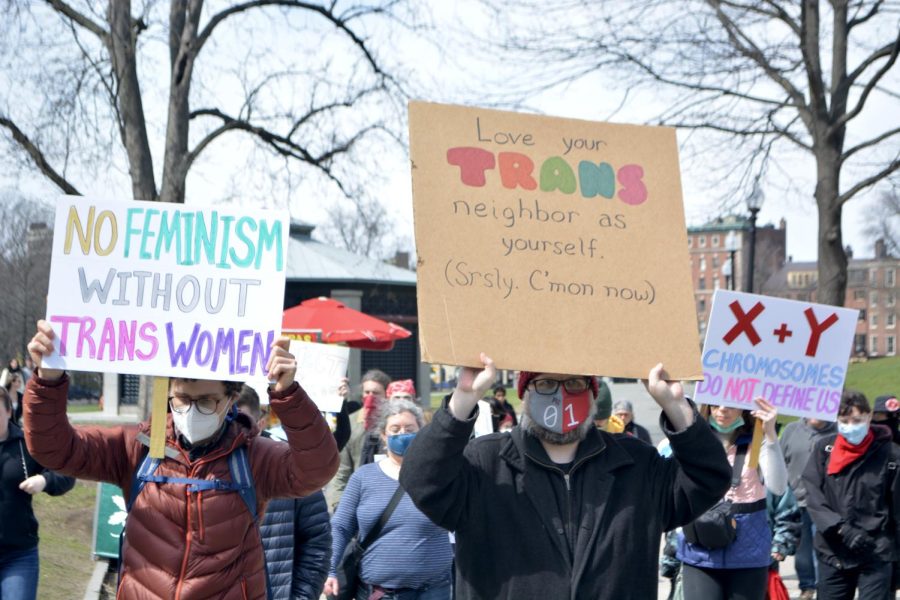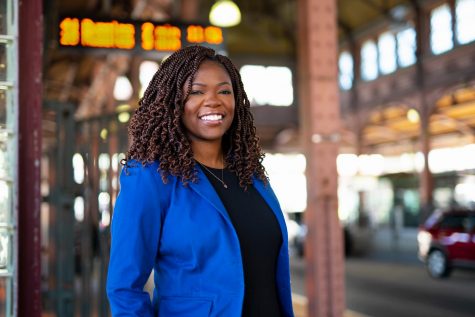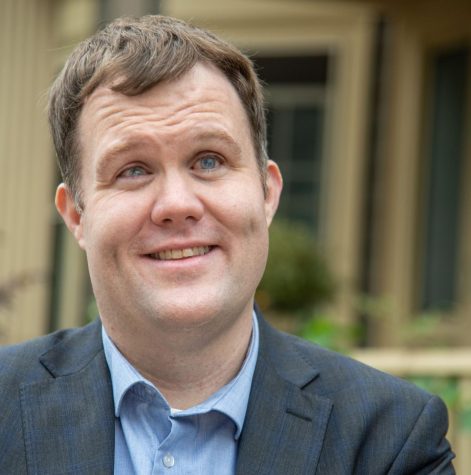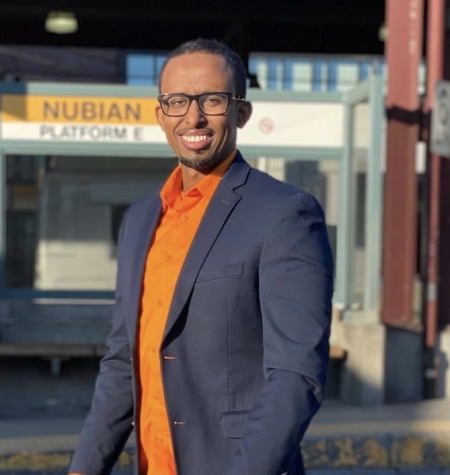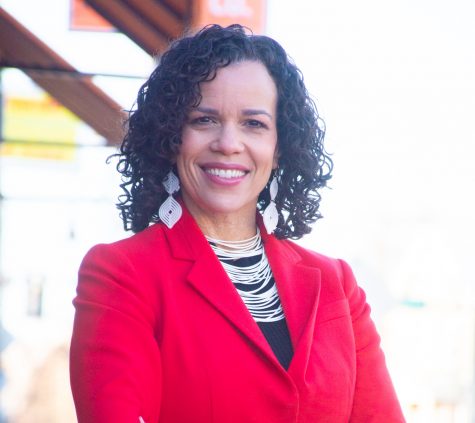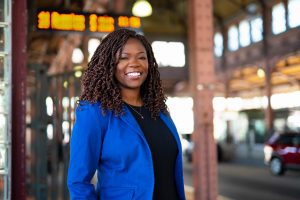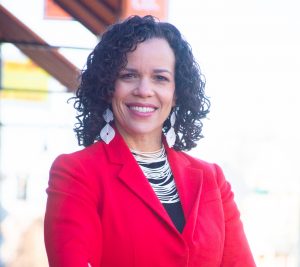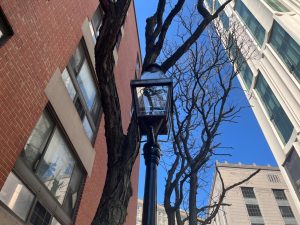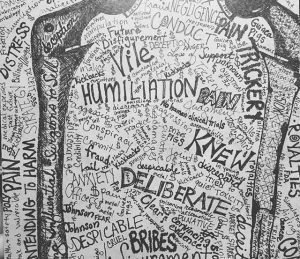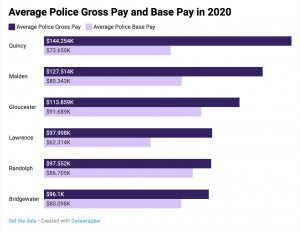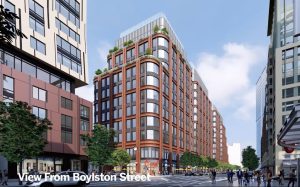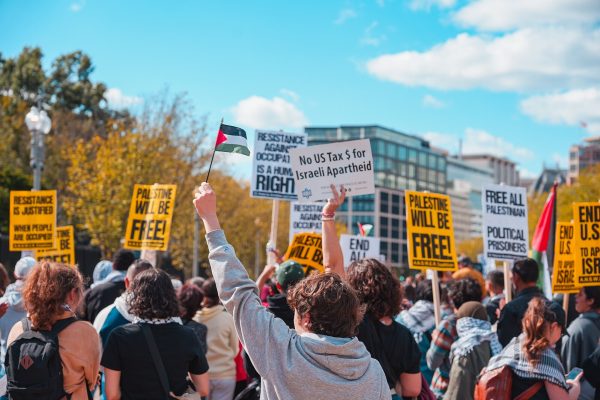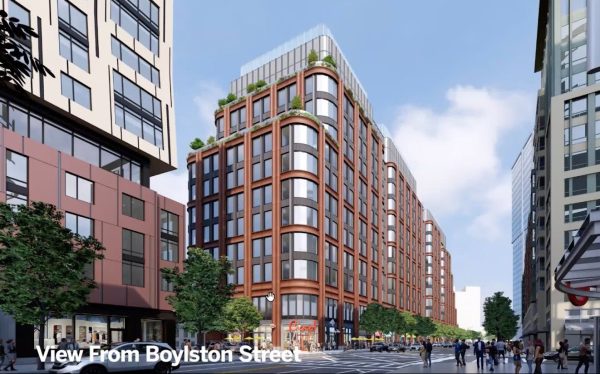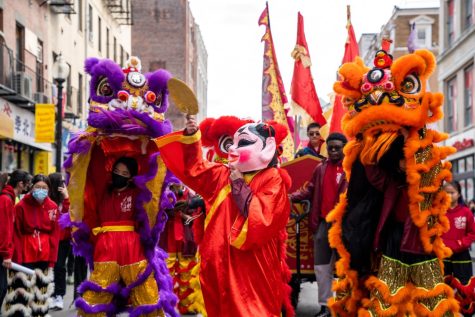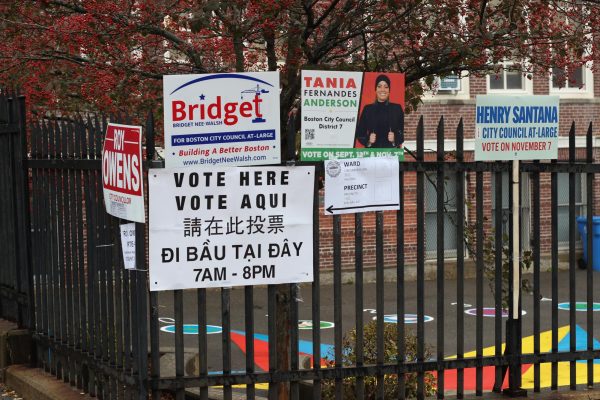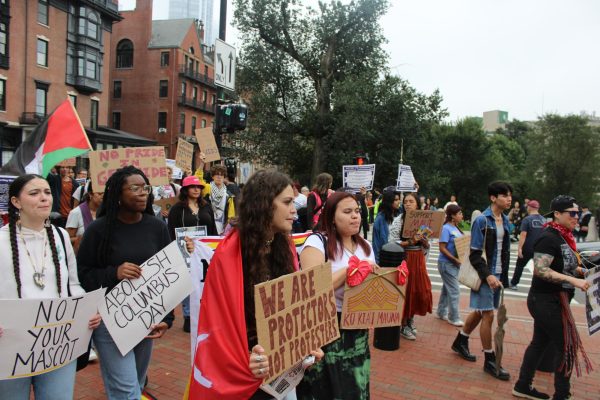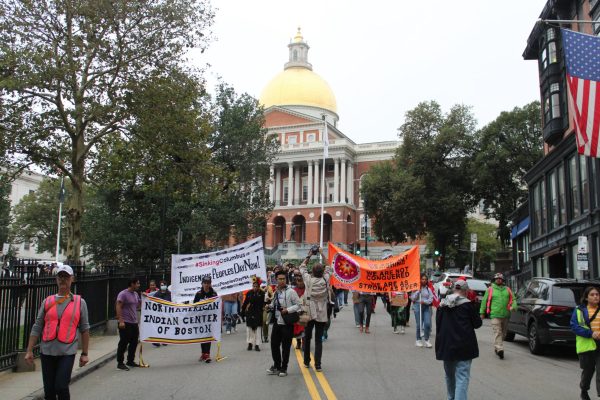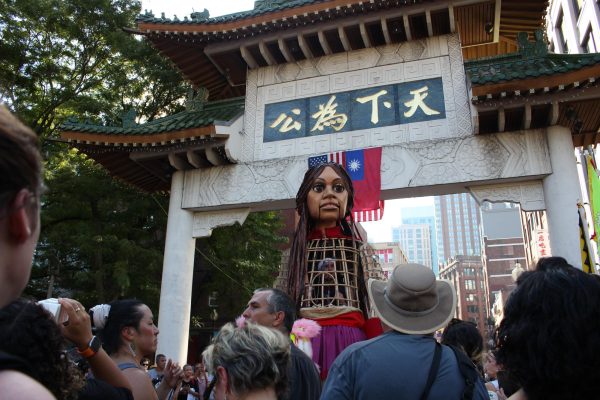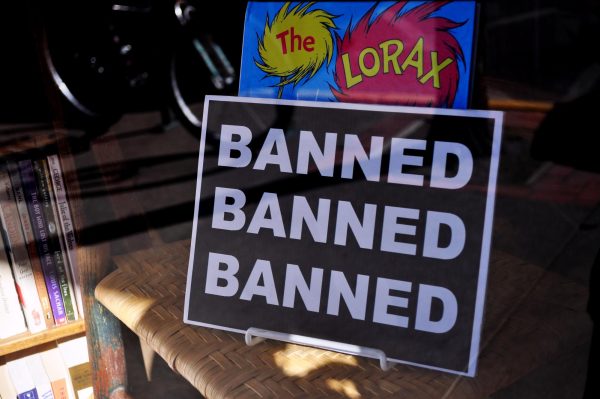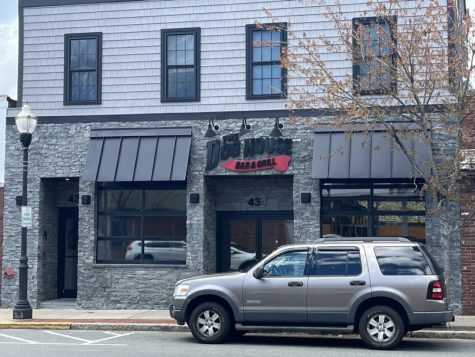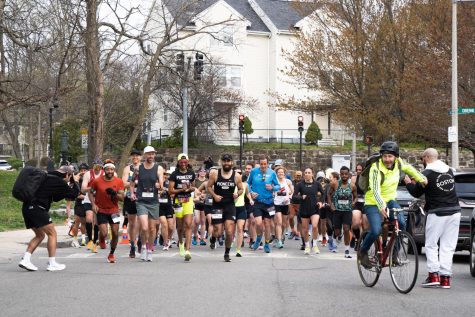Trans rights advocates march for Transgender Day of Visibility
Photo: Colette Pollauf
Participants at the Transgender Day of Visibility rally march through the Boston Common, holding signs and chanting.
April 4, 2022
Members of the transgender community and their allies took to the streets of downtown Boston on Sunday to protest the recent upswing in violence and political attacks against transgender people, in a march organized by the Boston Democratic Socialists of America (DSA).
“The past month has been really scary, living as a trans person,” DSA member Piper Slowinski said at the march. “…and the ability to do something to have our voices heard, be active, and feel like we’re able to push back against all the transphobia out there is, I think, an important moment right now.”
About 30 people showed up at the Charles River Esplanade on Sunday to join the rally, which celebrated Transgender Day of Visibility, held annually on March 31. This is a day to bring awareness to issues faced by transgender and gender non-conforming people. “There’s nothing weird or different or bad. And just because a person doesn’t know a trans person … it’s not something to be afraid of. We’re not something to be afraid of. Everybody should have the ability to just live their lives with access to what they need and without fear of attack,” DSA member T, who asked to be referred to by T only for privacy concerns, said during the march.
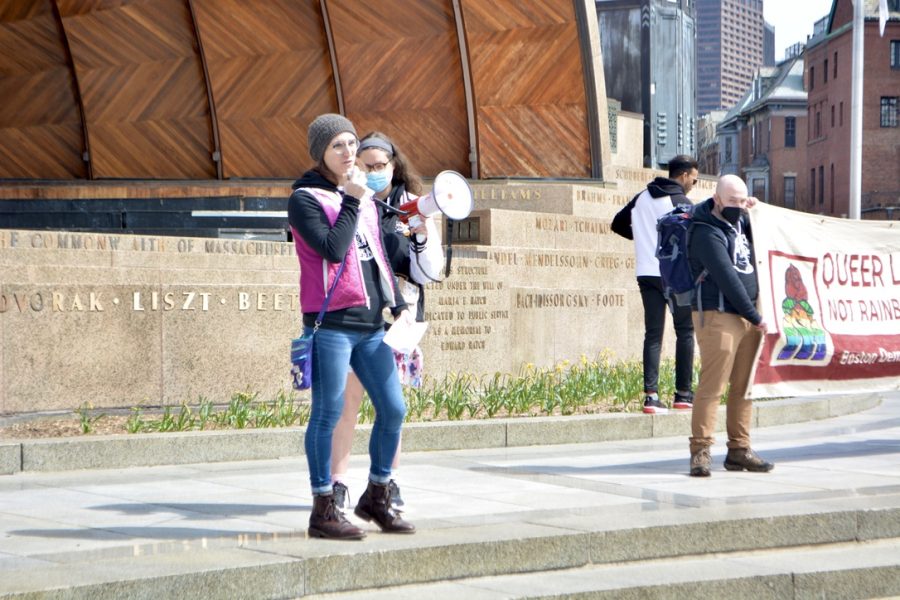
Dozens of states across the U.S. have recently passed or proposed legislation that attacks the rights of transgender people, particularly transgender youth. Last Wednesday, Gov. Doug Ducey of Arizona signed two bills targeting transgender youth into law, as did Oklahoma Gov. Kevin Stitt. In Florida, Gov. Ron DeSantis signed the controversial ‘Don’t Say Gay’ bill into law, which bans teachers from teaching information about sexual orientation or gender identity to children in kindergarten to third grade. Gov. Greg Abbott of Texas was temporarily halted from ordering gender-affirming medical care to be treated as child abuse.
Kitt Cali, the co-chair of Boston DSDA, expressed concerns over the rising anti-LGBTQ+ legislation in many states across the country. Cali, originally from Florida, reflected on her own experiences having a teacher who gave her and fellow students a safe space to express themselves. She worries that much of the progress made for LGBTQ+ rights is being undone.
“We’re worried that it might actually be worse now [for LGBTQ+ youth] because of the radicalization of the right towards surveilling children who are figuring out who they are and getting support from teachers,” Cali told The Scope at the march. “It feels strange and terrible to feel like maybe things have gone downhill.”
House Rep. Erika Uyterhoevana of the 27th Middlesex District gave a speech at the rally.
“The biggest play that comes out, particularly in places [of] power like the State House, is they say, ‘Oh, we’re doing great in Massachusetts. Look at all we did. We passed gay marriage 20 years ago. We’re doing great, right? … Everything’s fine.’ Things aren’t fine,” Uyterhoevena said. “And that’s why visibility is so important because it stops this erasure, the violence of erasure.”
“It’s really easy to think that this is a conservative state problem,” Slowinski added. “But you know, there are bills in New Hampshire and Rhode Island … that are being debated too.”
Almost 240 bills have been filed this year targeting LGBTQ+ people, most of them targeting transgender people specifically. This is a massive increase from previous years. In 2018, there were 41 anti-LGBTQ+ bills filed.
Each person at the rally emphasized the importance of supporting legislature that promotes transgender and LGBTQ+ rights, including Bill H.618, which makes school curriculums more LGBTQ+ inclusive.
“It’s important for our trans youth and queer youth to go to see themselves in our history and in the world,” said Slowinski.
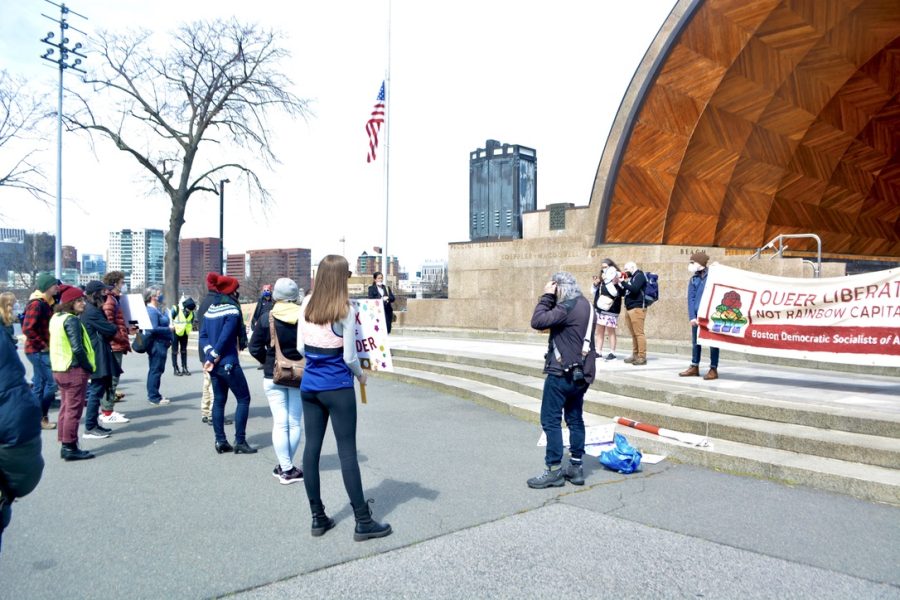
Others highlighted the importance of supporting smaller and more local measures, including Elliot S., another attendee at the rally, who uses they/them pronouns.
“Pay attention to what’s going on locally … You can make a lot of a difference in that,” they said. “And it’s also very easy to not really pay attention, to get wrapped up in what’s going on nationally, but I think paying attention to the local stuff is really important.”
Many attendees expressed that the recent attacks against transgender people, especially transgender youth, can contribute to feelings of loneliness and isolation. Athena Zeiter, a transgender woman who attended the march, reminded young people that they have support.
“Find communities, because you’re not alone. And I know that it feels like you’re alone, but you’re not. There’s a vast community of trans people out there, and your life and quality of life will greatly improve when you find your community and you find your tribe and seek out different resources,” Zeiter said.
T recommended Massachusetts organizations such as Trans Resistance and Black and Pink for transgender people and allies alike.
The march went through some of the most populated places in Boston, ending at the Common. Protesters waved signs, chanted, and did everything they could to remind the city of their presence.
“Visibility as a trans person is hard. It can be f*cking scary living in such a transphobic world,” said Slowinski, in a speech she gave at the rally. “But that’s also one of the most powerful and glorious things that we can do. In the face of rampant transphobia, trans visibility is an act of hope. It’s an act of love.”
Alexa Grayson contributed to this piece.

